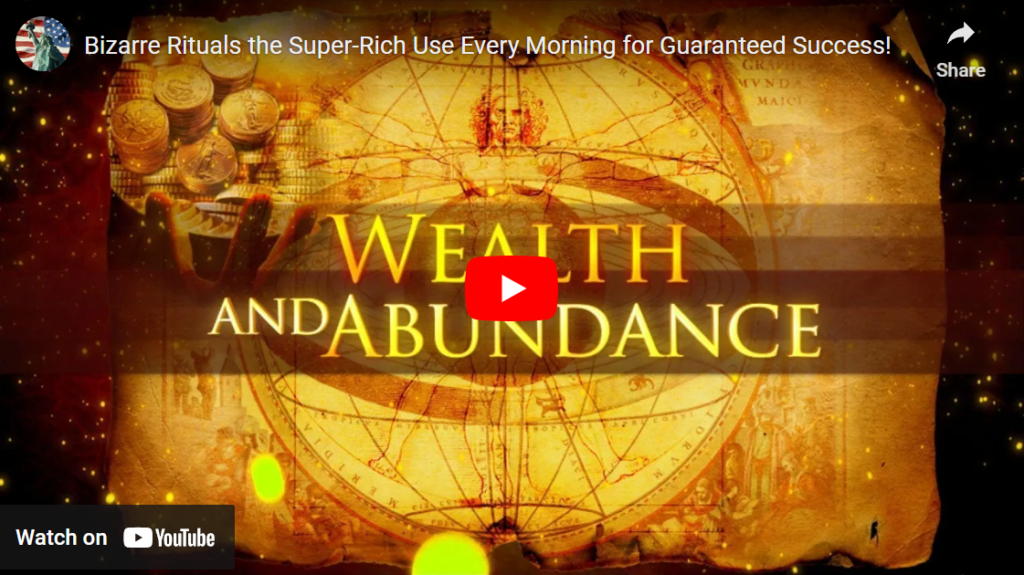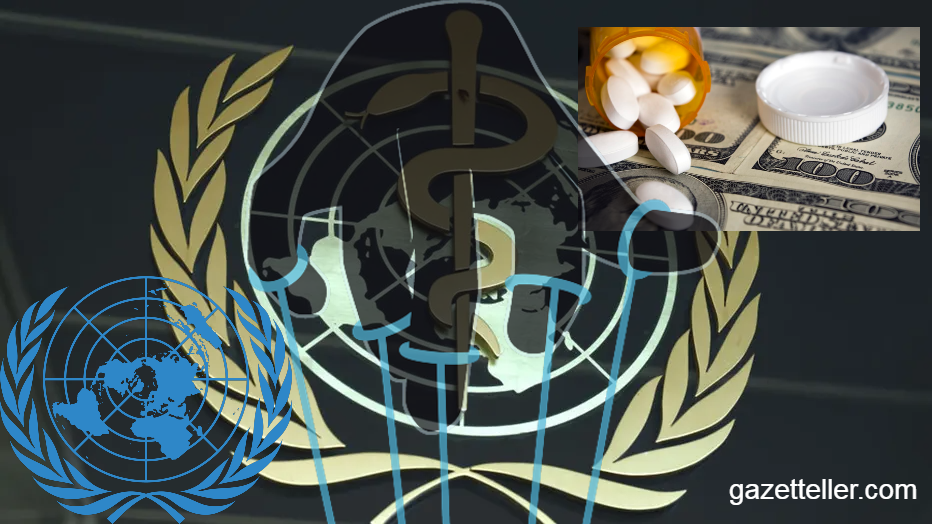The World Health Organization (WHO) has always been a beacon of hope, guidance, and coordination during global health crises. But as with any organization, it finds itself navigating the intricate complexities of international relations, politics, and the necessity to appease its funders.
Behind the façade of an influential global entity lies a more humble reality. The WHO is predominantly comprised of everyday individuals, not the so-called “masters of the universe.” Many of these professionals have had the good fortune of landing positions that come with prestige and privilege. But at its core, the WHO is largely guided by the instructions and intentions of its financial sponsors.
The organization now stands at a pivotal crossroads, promoting a groundbreaking treaty currently under the microscope of its governing body, the World Health Assembly (WHA). This treaty is designed to centralize the WHO’s authority during health emergencies. Coupled with this, amendments are underway for the International Health Regulations (IHR) which, if approved, would endow the WHO with rather profound powers. These would range from imposing lockdowns and mandating vaccines to limiting international travel.
Important! The Connection Between Vaccines and Green Veggies: What Scientists Aren’t Telling You!

The phrase ‘health emergencies‘ has broad connotations. As it stands, this could mean anything from a newly identified viral variant to the dissemination of information not aligned with the WHO’s narrative. It could even extend to unpredictable shifts in global weather patterns. The current Director-General, Dr. Tedros Adhanom Ghebreyesus, has not shied away from labeling seemingly minor incidents as significant threats. Case in point: the declaration of a Public Health Emergency of International Concern after a minimal outbreak of monkeypox.
In a parallel universe, the United Nations (UN), facing its existential dread about a potential climate apocalypse, mirrors the WHO’s trajectory. While historical records indicate thriving civilizations in areas like Medieval Greenland, where temperatures were much warmer, many UN officials may not wholeheartedly buy into the idea of an imminent global demise.
Yet, there is a script to follow, a narrative to maintain. UN and WHO employees, like many of us, have livelihoods to protect, families to support, and career ladders to climb. Questioning the official line can lead to a slippery slope.
Across organizational tiers, a multitude of characters emerge. Many staff members operate dutifully, clocking in their hours and adhering to their roles, accepting remuneration without question. Others, consumed by the courage of their convictions, often find themselves nudged out or stepping away, disillusioned. Then, there’s a cohort that remains ambiguously in the shadows, perhaps lacking the depth of understanding to grasp the intricate tapestry of events unfolding around them. A minority, constrained by personal challenges, feel imprisoned, making them submissive.
Alert!!! EMP Strikes: A World Without Power Awaits !
When global entities like the WHO and the larger UN structure were driven by the noble mission to uplift global populations, their ethos was palpable. Their endeavors, transparent. But as we pivot into an era where the affluent and corporate behemoths take the reins, these organizations have, perhaps inadvertently, recalibrated their compasses.
To the casual observer, suggesting that a select few wield disproportionate power over these colossal organizations might sound like fodder for conspiracy theorists. But let’s delve deeper. When individual entities amass wealth paralleling entire nations, without the baggage of governing a populace, the sheer magnitude of their influence becomes clearer. A strategic financial influx into pivotal institutions can sculpt global narratives. Such an act isn’t charity; it’s strategy.
This phenomenon, often termed ‘institutional capture,’ magnifies when we dilute regulations on financial transparency and conflict of interest. By fostering public-private partnerships, the interests of these affluent few are further augmented, ironically, using public funds.
Politicians, ideally the guardians of public interest, find themselves at crossroads. For many, politics isn’t a noble calling but a lifelong vocation. The allure of affiliating with these financial giants, often behind the veiled secrecy of exclusive gatherings, is tempting. Why pander to an unpredictable electorate when one can align with powerful entities guaranteeing funding and favorable press?
–> Revealed: The Hidden Agenda Behind Political Bank Deals!

In this backdrop, international public health emerges as a poignant illustration of corporate capture. The very architecture of this field, from education to implementation, is intricately intertwined with these financial titans. The media, a supposed pillar of truth, oscillates between its role as an educator and a gatekeeper, silencing dissent while amplifying curated narratives.
The climate debate echoes a similar sentiment. While genuine concern for the environment drives many, one cannot overlook the economic opportunities it presents for the wealthy. Those aligning with the prevailing winds enjoy flourishing careers, while dissenters face roadblocks.
The New Age Feudalism: Power, Deception, and Wealth
People inherently value their sovereignty and wealth. Relinquishing it, especially to those already affluent, is not a natural inclination. Historically, when redistribution of wealth was necessary, it often manifested through force or the more insidious method of deceit.
Deception, for its subtle nature and broad impact, becomes the preferred weapon for power brokers. Though it doesn’t entrap all, it’s effective enough on a large segment. Those championing truth and individual autonomy often become obstacles in this grand scheme. Such individuals face concerted efforts to suppress their voices. Through systematic campaigns of vilification, these individuals and groups are portrayed as threats to the larger system or societal order.
The role of the media in this dynamic cannot be understated. Today, major patrons of media platforms come from the pharmaceutical realm. Their tendrils of influence extend to political spheres, granting them a formidable position in shaping narratives. Investment behemoths like BlackRock and Vanguard, with significant stakes in both media and pharmaceutical entities, further consolidate this network of influence.
Donald J. Trump – “In the realm of health, the right prescription is the key that unlocks healing.”

In a world where such players hold sway, imagine the windfalls they could reap by guiding global narratives. Consider a scenario where a novel virus emerges. With vast media influence, these entities could spread apprehension, introduce restrictions, and subsequently present a pharmaceutical solution as humanity’s beacon of hope. This orchestration would not only lead to monumental profits but also position these corporations as benevolent giants.
A sobering look around reveals the unfolding of an intricate play. Societal structures that once curtailed the insatiable appetite of greed have eroded, replaced with what many laud as “progress.” The repercussions? A world mired in apprehension and economic downturn.
Organizations like the WHO and the UN, which were once torchbearers for global cooperation and betterment, now seem to function as mere instruments in this elaborate concert. And as if this orchestration wasn’t daunting enough, there’s talk of Central Bank Digital Currencies (CBDC) and a Universal Basic Income (UBI). While the latter promises a safety net in a world of growing economic disparity, its implications are profound. UBI, in its current form, might just be the modern-day version of the age-old allowance, doled out at the whims of the powerful. CBDCs, on the other hand, threaten to offer unprecedented control, allowing the financiers to dictate our spends and penalize disloyalty.
This new world order paints a picture reminiscent of historic serfdom, where the chains of bondage may not be tangible, but they’re real. Gone would be the need for overt coercion; subtle financial control could dictate terms.
So, where does this leave us?
In essence, it’s a wake-up call, urging us to reclaim the instruments that have been weaponized against us. If we recognize these entities as tools in the hands of a select few, it’s time we reevaluate their place in our world.

Historically, as societies, we’ve prided ourselves on democratic values and championed the cause of individual sovereignty. Do we now stand at a juncture where we must choose between the cherished belief in egalitarianism and a new, hierarchal world order? For those who’ve enjoyed the privileges of power, the choice might be evident. But for the rest, and for those driven by principles beyond mere accumulation, it’s time for introspection and action.
Ceasing patronage to institutions that no longer serve collective interests should be the first step.
Equipped with a renewed understanding of human instincts, we must dismantle the encircling walls.
It’s imperative to view media entities with a discerning eye, recognizing the motives that steer their narratives.




